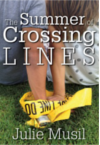By Elizabeth S. Craig, @elizabethscraig
My entire family has suddenly become obsessed with pineapple. I don’t know what came over them. It’s like the pineapple fairy visited one night. And they want it fresh. Not canned or frozen (does it even come frozen)?
So…I started out by buying those containers of chopped pineapple at the grocery store deli. But I balked at paying $6 for a smidgeon of pineapple that the family consumed in less than a day.
Then I bought the formidable looking fruit whole. I looked up “how to cut a pineapple” online and the internet immediately coughed up a wiki-How thing with helpful pictures. However, this process involved a bit of brute strength on my part, a couple of very sharp knives (never smart for a clumsy person), and about thirty minutes since I still had to slice out the tough black “eyes” afterward.Continue reading




